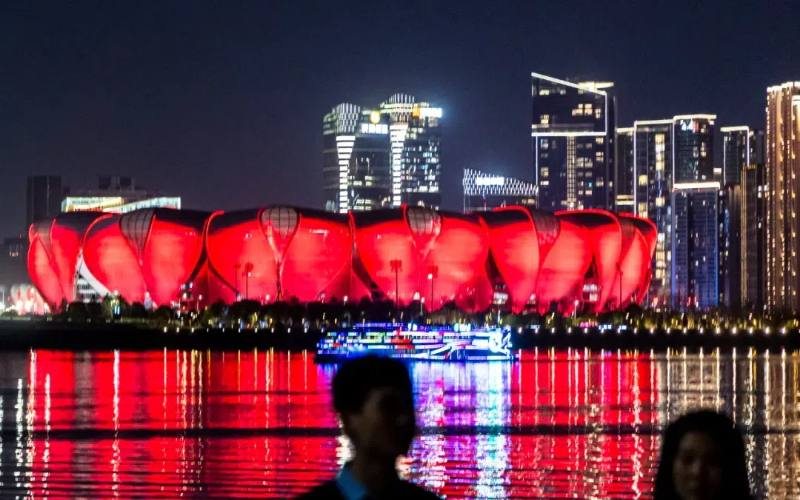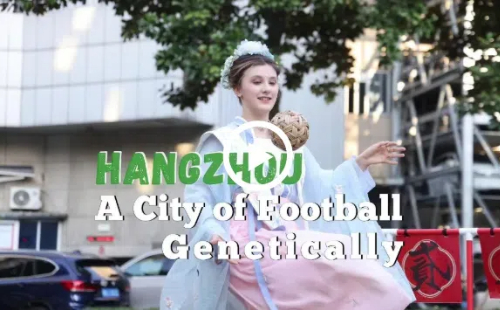Coffee aroma permeates in mountain village
Anji, a small county in East China's Zhejiang province with a permanent population of about 590,000, receives over 28 million tourists every year. There are more than 300 coffee shops there, which in terms of population density has surpassed that of Shanghai.
"A cup of coffee bridges the gap between the big city and small county," said Han Jie, a Shanghai tourist who temporarily "escaped" the metropolis and came to Anji over the weekend.
In Zhejiang, an escalating number of coffeehouse owners and baristas are venturing into rural areas to meet the demands of a growing population of young and adventurous coffee enthusiasts.
As a haven for urbanites seeking spiritual rejuvenation, where can cafes be opened? In Anji, the answer is mountains, fields, lakes, waterfalls, forests and mines.
Deep in the bamboo forests of Penghu Village in Anji lies Waterfall Coffee, a captivating cafe that has gained popularity among social media influencers.
Visitors can not only savor pour-over coffee on the cliff terrace at an altitude of nearly 600 meters halfway up the mountain while feasting their eyes on the waterfall and distant lush mountains, but also enjoy boating in the company of black swans on the serene lake, or set up camps in a grassy field located near the hilltop with an excellent view.
"We sell 400 cups of coffee a day on holidays, and on weekdays, more than 100 cups are sold," a staffer at the cafe said.
In June 2003, Zhejiang launched the Green Rural Revival Program, which planned to renovate about 10,000 incorporated villages and transform about 1,000 central villages among them into examples of moderate prosperity in all respects.
After two decades of relentless effort, Anji, the birthplace of the idea "clear waters and green mountains are as valuable as mountains of gold and silver," is now successfully transforming its ecological advantage into tangible wealth.
The Deep Blue Coffeehouse, located on an abandoned mine near a natural lake in Hongmiao Village of Anji, has been transformed by a dedicated young team. It has now become a captivating scenic spot that attracts numerous visitors and prompts them to share their experiences on social media.
The outdoor cafe has received 350,000 tourists in less than a year, with the highest daily number of visitors hitting 8,000 people. It has generated more than 6 million yuan (about $835,700) of revenue for the village.
Cheng Shuoqin, owner of the coffee shop, and his team of college students were well prepared for the Dragon Boat Festival holiday. "This year, nearly 30,000 people came to our cafe during the May Day holiday, and thousands of cups of coffee were sold on May 1," Cheng said. "We are making efforts to expedite the development of more scenic spots and on-site experiential activities."
The small coffee shop has ignited a sense of vitality in the rural economy of Hongmiao Village, prompting an enterprising team of university students to collaborate with the local government in organizing a startup fair, with the aim of attracting hundreds of university graduates to embark on entrepreneurial ventures in the village.
Efforts to build aesthetically pleasing villages are improving rural settlements, infrastructure, public services, culture and governance. This has attracted young innovators and entrepreneurs and facilitated the implementation of new ideas, technologies and projects, thereby fostering rural revitalization with remarkable breakthroughs.





 play
play